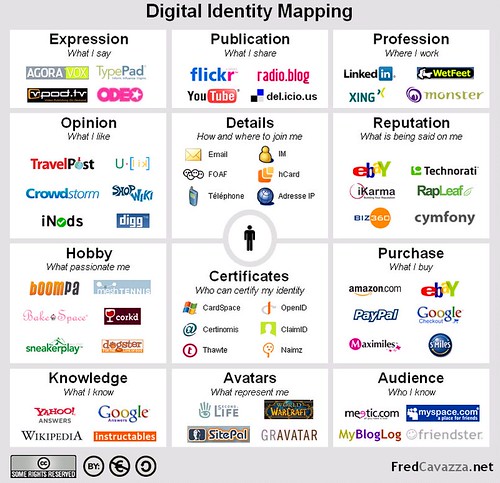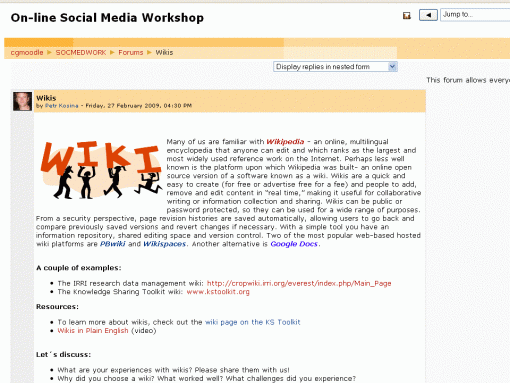Eugene Eric Kim of Blue Oxen Associates pinged me today about an offering coming up that looks really juicy. It resonates a bit with some of the workshops I’ve been doing with clients. I love that he is mixing tools with process and fundamental views about participation. I’m really interested in learning more about the “conceptual framework.” Sounds like technology stewardship!!
 The workshop starts next week, and the application deadline is Monday, so if this looks interesting, jump in! And tell us how it was. (I am facilitating a bit too intensely the next three weeks to fully commit to another workshop – but I was sorely tempted!)
The workshop starts next week, and the application deadline is Monday, so if this looks interesting, jump in! And tell us how it was. (I am facilitating a bit too intensely the next three weeks to fully commit to another workshop – but I was sorely tempted!)
Blue Oxen Associates » Tools for Catalyzing Collaboration: June 2009
There are an overwhelming number of online tools that promise to help you collaborate more effectively. How do you know which ones are right for you? How do you tailor those tools for your organization? And most importantly, how do you use these tools most effectively?Blue Oxen Associates principal, Eugene Eric Kim, will be leading an intensive, four week online workshop that explores these questions. In this workshop, you will:
* Develop a conceptual framework for how to think about, evaluate, and apply online tools and social media to your work.
* Get real, hands-on experience with several of these tools.You will be working with your fellow participants in a Blue Oxen Collaboratory, where you will have the opportunity to play with tools such as microblogs and Wikis for real learning and collaboration. At the end of this workshop, you will understand how to think strategically about online tools, even as they continually and rapidly evolve.
Topics
* Patterns of high-performance collaboration
* Identity, trust, and reputation
* Strategies for effective communication and knowledge sharing
* Specific tools include:
o Email, mailing lists, and online forums
o Teleconferences and shared screens
o Social Media / Web 2.0
o Wikis
o Blogs
o MicroblogsThere are a number of other online tools available for catalyzing collaboration, and we will not even attempt to cover all of them. However, this course will help you develop fundamental skills that will apply to all online collaborative tools.
What is also interesting is that Eugene is doing “pay what you feel it is worth.” I’ve been very interested in this model, but a bit timid to try it.
 My friend and colleague, Shirley Williams, pointed me to a great resource on digital identity (DI) that she and her colleagues created for their students at Reading University in the UK. It is called “
My friend and colleague, Shirley Williams, pointed me to a great resource on digital identity (DI) that she and her colleagues created for their students at Reading University in the UK. It is called “
 As part of
As part of 